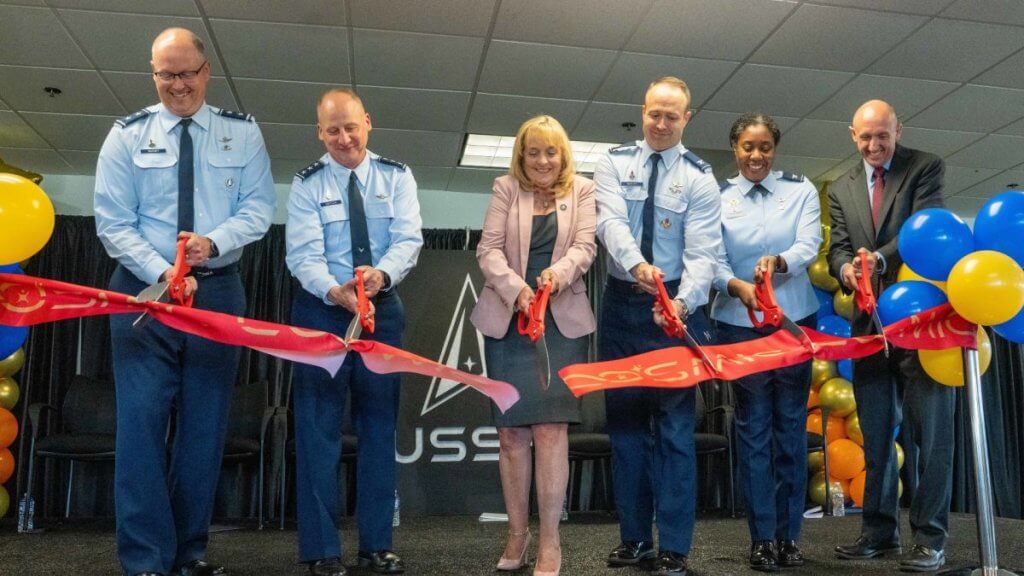
US Space Force wants private companies to help it counter ’emerging threats’ in space (Image Credit: Space.com)
The U.S. Space Force is seeking to maintain space superiority by opening a new office that will help it partner with the private sector and acquire new technologies more quickly.
A ribbon-cutting ceremony held Tuesday, June 6, marked the official opening for Space System Command’s (SSC) new Commercial Space Marketplace for Innovation and Collaboration office, or COSMIC. The Chantilly, Virginia facility will serve as headquarters for SSC’s Commercial Space Office (COMSO), which was established last year to bolster relationships between the U.S. Space Force and the private sector and capitalize on emerging technologies, according to a Space Force statement.
SSC is the U.S. Space Force’s organization for development and acquisitions, and opened COSMIC in a partnership with Virginia Tech Applied Research Corporation (VT-ARC), and in cooperation with the Air Force Research Laboratory’s (AFRL) Air Force Office of Scientific Research.
Related: What is the U.S. Space Force and what does it do?
COSMIC’s debut comes amidst an ongoing shift in strategy at SSC, as they begin to pivot from developing their own technologies to strengthening partnerships with private companies. In opening remarks at the ribbon-cutting ceremony, Space Force Maj. Gen. Steve Whitney said that as the service transitions from a small number of larger, more vulnerable satellites to constellations of smaller, more expendable ones, “institutions like COSMIC are more important than ever.”
USSF Col. Rich Kniseley serves as Senior Material Leader, and runs COMSIC. Kniseley said that COSMIC provides “a place and means for us all to get together and best collaborate on commercial space capabilities, warfighter requirements, and how to best deliver those capabilities.”
Indeed, unlike SSC, which is headquartered in Los Angeles, COSMIC’s northern Virginia locale puts it just outside the borders of Washington, D.C., and close to several government intelligence agencies and commercial space company offices. “The National Capital Region is a sweet spot for connecting with government agencies in the intelligence community as well as with key space agencies such as NASA and the Space Development Agency,” Kniseley said.
COSMIC spans 10,000 square feet (929 square meters), and includes office and conference spaces that are geared toward commercial outreach services. Acting director for the AFRL Office of Scientific Research, U.S. Air Force Col. Janelle T. H. Jackson stressed the importance of COSMIC’s initiatives, saying the U.S. faces an increasing threat of military competition. “Our competitors and adversaries are rapidly moving to challenge and surpass the U.S. science and technology advantage and gain superiority in the air and space domains,” Jackson said. “Taking an integrative approach by partnering with industry and academia are one of many ways we can lead the challenge.”








